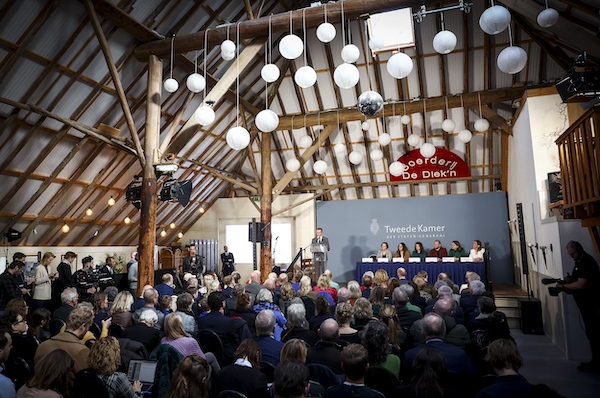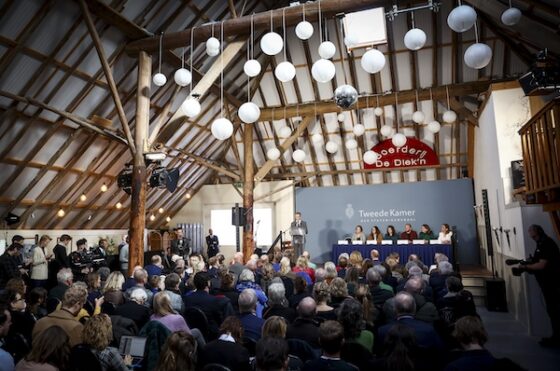Damning report slams state, oil companies for Groningen gas failures


The interests of the people of Groningen were systematically ignored by both the government and oil companies, and making money remained the dominant concern when natural gas extraction started causing earthquakes, according to the parliamentary commission set up to investigate.
The worlds of those making the decisions and the locals were ‘miles apart’, commission chief Tom van der Lee said at the presentation of the report into the problems, which has taken two years and hundreds of interviews to complete.
Gas extraction has become an ‘unprecedented system failure’ and both the public and private sector have failed in their duties, Van der Lee said.
Ministers were not properly informed and that meant that MPs could not fulfill their role as guardians of the public interest. The damage, both material and mental, suffered by locals was consistently underestimated and the maximalisation of profit was the guiding force.
The inquiry was set up to find out exactly why the exploitation of the massive gas field under the northern province has led to so much uncertainty among locals, damaged thousands of homes, caused billions of euros in extra costs and led to a continuing dispute about who is responsible for what.
More than 1,600 quakes of up to 3.6 on the Richter scale have hit the province since 1986. Some 85,000 buildings have been damaged at least once, but to date only 30% of homes have been made safe again, Van der Lee said.
‘The commission considers that the Netherlands has a debt of honour to Groningen,’ he said. ‘The Netherlands and the oil companies have profited from the gas field for 60 years and it has been an important source of our national prosperity.’
Debt
This has come at a price and it is now time for the state and the oil companies to pay their debt, he said. ‘It is not simply about who is responsible. It is about the moral requirement to remove the damage and pain done to Groningen and the Groningers, and to make extra staff and money available to do this.’
In particular, processes to strengthen homes and repair damage should be streamlined and the rules should be applied less rigidly, he said. And to give the region as a whole more perspective, investments need to be made in attracting new business and in protecting its cultural heritage.
Zeerijp
The report was presented in the Groningen village of Zeerijp, where a 2018 quake measuring 3.4 on the Richter Scale eventually led to the government deciding to phase out gas extraction from under the province this year.
In total, 68 people were questioned by the commission, ranging from senior civil servants and Shell officials, to local residents and children. During the hearings it emerged that the mining inspectorate had recommended winding down gas extraction in 2013 because of the risk of earthquakes, but the warning was ignored.
The Dutch state has earned more than €360 billion from the exploitation of the Groningen gas field since extraction began in 1963.
Total revenues from the gas region amounted to €428 billion when adjusted for inflation, of which €360 billion went into the government coffers while €66 billion was split between Shell and ExxonMobil, the joint owners of NAM, the company set up in 1963 to distribute Dutch gas.
Thank you for donating to DutchNews.nl.
We could not provide the Dutch News service, and keep it free of charge, without the generous support of our readers. Your donations allow us to report on issues you tell us matter, and provide you with a summary of the most important Dutch news each day.
Make a donation